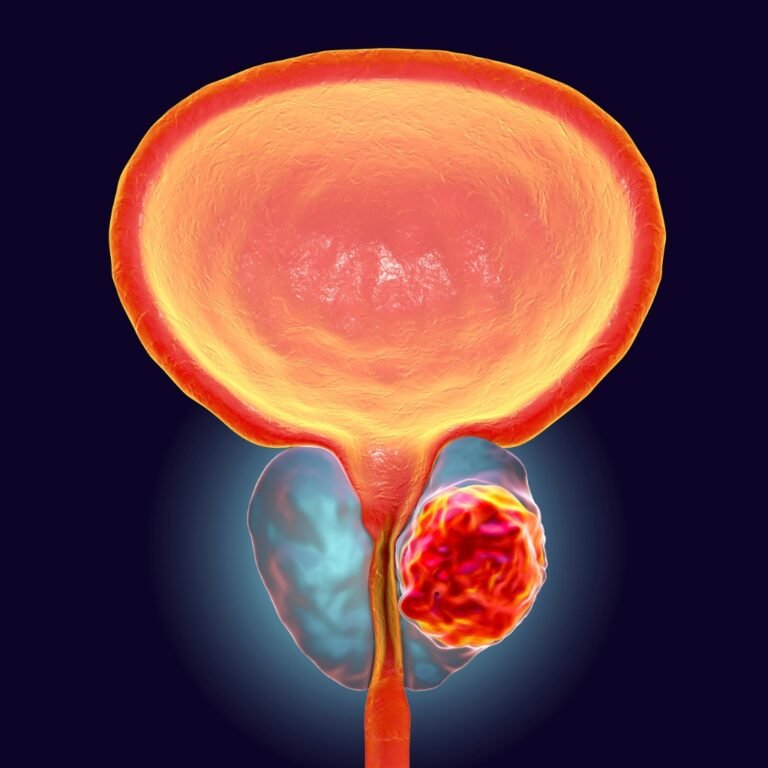Staying hydrated is one of the simplest yet most essential aspects of maintaining good health. While we often hear about the importance of drinking enough water, few people realize the significant impact it has on our urological health. Urological issues such as kidney stones, urinary tract infections (UTIs), and bladder problems can be linked directly to inadequate hydration. But how much water should you really be drinking to keep your urinary system healthy?
Why Hydration is Key to Urological Health
Water plays a pivotal role in flushing out toxins and waste products from the body, primarily through urine. When you’re not drinking enough water, your urine becomes more concentrated with minerals and waste, which can lead to the formation of kidney stones or increase the risk of urinary tract infections (UTIs). Proper hydration helps to:

⦁ Prevent Kidney Stones: Kidney stones are hard deposits of minerals and salts that form in your kidneys. Drinking enough water dilutes these minerals, reducing the likelihood of stone formation. People who don’t drink enough water are at a much higher risk of developing kidney stones, especially those living in warm climates like Gurgaon and Delhi NCR.
⦁ Reduce the Risk of UTIs: UTIs occur when bacteria enter the urinary tract. By staying hydrated, you can help flush out these bacteria before they have the chance to cause an infection.
⦁ Support Bladder Function: Adequate hydration keeps your bladder functioning efficiently, reducing the chances of irritation and infections.
How Much Water Should You Drink?
The amount of water each person needs can vary based on factors like climate, activity level, and individual health. However, a good general guideline is to aim for 8-10 glasses of water per day, which is about 2 to 2.5 liters.
For those who live in warm regions like Delhi NCR, or those who engage in intense physical activity, the body may require more water to compensate for fluids lost through sweat. It’s important to pay attention to your body’s signals, such as thirst, and adjust your intake accordingly.
One simple way to monitor your hydration status is by checking the color of your urine. Ideally, it should be a pale yellow. If it’s dark yellow or amber, you likely need to drink more water.
What Happens When You Don’t Drink Enough Water?
When you’re not adequately hydrated, your urine becomes more concentrated, which can irritate the bladder and make it easier for bacteria to grow, leading to a higher risk of infections. Dehydration also causes a decrease in urine output, which prevents the kidneys from effectively flushing out minerals that can form kidney stones.
Chronic dehydration is a major cause of recurrent kidney stones and UTIs. Individuals prone to kidney stones, in particular, are often advised by urologists to increase their water intake significantly.
Hydration and Urological Health Relationship
To maintain optimal urological health, it’s crucial to make hydration a daily habit. Here are some practical tips:
1. Carry a Water Bottle: Always keep a water bottle with you, especially when you’re on the go. This will serve as a reminder to sip water throughout the day.
2. Start Your Day with Water: Drinking a glass of water first thing in the morning helps kickstart your metabolism and rehydrate your body after hours of rest.
3. Infuse Your Water: If plain water feels boring, add slices of fruits like lemon, cucumber, or mint to make it more appealing.
4. Limit Caffeine and Alcohol: Both caffeine and alcohol can increase urine production and lead to dehydration. Try to balance your intake with plenty of water.
5. Eat Water-Rich Foods: Incorporate fruits and vegetables with high water content into your diet, such as watermelon, cucumbers, oranges, and strawberries.
6. Set Hydration Reminders: Use phone apps or set reminders to ensure you’re drinking water regularly throughout the day.
Hydration Needs for Specific Urological Conditions
For individuals with certain urological conditions, the recommended water intake may vary. If you have had kidney stones in the past, you may need to drink more than the standard recommendation. Dr. Sumit Bansal, a highly regarded urologist in Gurgaon, often advises his patients to drink enough water to produce about 2 liters of urine per day. This helps to keep the kidneys healthy and prevent the recurrence of kidney stones.
Those who have experienced recurrent UTIs may also benefit from increasing their water intake, as studies have shown that women who drink more water tend to have fewer UTIs.
When to See a Urologist
If you’re experiencing symptoms such as painful urination, blood in your urine, or persistent pain in your lower abdomen or back, it’s important to consult a urologist. These could be signs of a more serious condition, such as kidney stones, a UTI, or even bladder or kidney cancer.
If you’re unsure about your hydration needs or have been dealing with recurrent urological problems, don’t hesitate to schedule a consultation with Dr. Sumit Bansal. As one of the best urologists in Gurgaon and Delhi NCR, he specializes in the diagnosis and treatment of urological conditions, offering personalized care to help you maintain a healthy urinary system.
Conclusion
Staying hydrated is a simple yet highly effective way to support your urological health. By drinking enough water, you can reduce your risk of developing painful kidney stones, irritating UTIs, and other urological issues. While general recommendations suggest about 8-10 glasses a day, it’s important to listen to your body’s needs and adjust based on your lifestyle and environment.
If you have concerns about your urinary health or hydration habits, Dr. Sumit Bansal, an experienced urologist in Delhi NCR, can provide expert guidance and care. Remember, prevention starts with hydration – so grab that glass of water and keep your urinary system in check!
For personalized urological care, book an appointment with Dr. Sumit Bansal today.
Visit Dr. Sumit Bansal Urology Clinic in Gurugram


